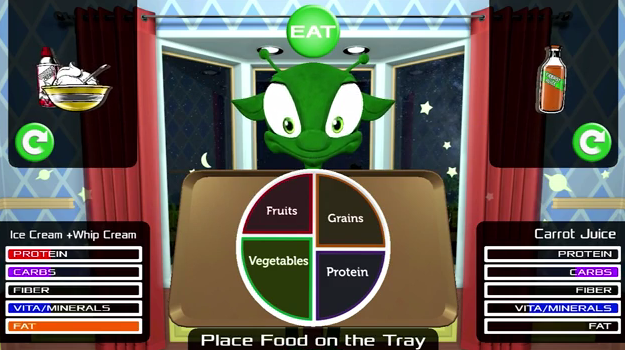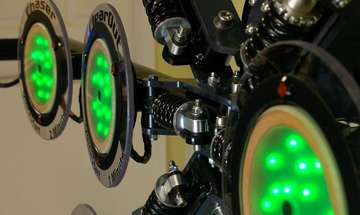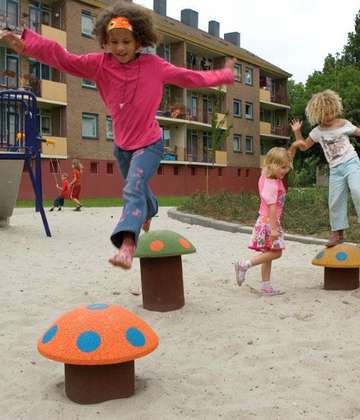Physical Activity Helps Children Retain Information Longer
 images: EMBODIED GAMES
images: EMBODIED GAMES A new research at Arizona State University's Embodied Games for Learning Lab has revealed that physical activity while learning helps students retain the information longer.
A new educational study conducted by Mina Johnson-Glenberg, director of the Embodied Games for Learning Lab at Arizona State University, shows that physical movement while learning helps children retain knowledge of science-related subjects longer. The ASU scientist has designed a number of mixed-reality games which motivate children to do dance moves, jumping jacks and arm circles while learning the subjects, and the results show that a full body exercise helps with retention of information.
The Embodied Games for Learning Lab focuses on designing active games in the fields of health science and STEM (science, technology, engineering and math) by using exercise gaming technologies and gesture-based learning. Children typically play the games in teams of two using the Xbox Kinect, which detects their movement and shows their actions on a display screen. Johnson-Glenberg, who is also a professor in the Department of Psychology in the College of Liberal Arts and Sciences, told CBS 5, "What we have found is that when students are active or moving while learning, they retain the information longer. Along with learning things via symbols or numbers, you're also learning with the sensory motor input that you're getting from moving the body."

The games used at the EGL Lab were developed to get children interested in health and science, and to improve educational outcomes and kids' ability to learn. Johnson-Glenberg explains, "If I can get them when they're young, and keep them interested in science topics, then hopefully they'll carry that on as adults."
The games include Tour de Force, which requires children to move their arms in a circular motion, either in low or high gear, in order to move bicycles up a hill; Red Rover Come Over, which gets them to move their arms to get the rover to move its arms and crush rocks; and Alien Health Game, in which kids explore nutrition and use their arms to feed an alien and then do squats or jumping jacks to help the alien metabolise the meal.
The study, which used the Alien Health Game, showed that students in the Alien Health group retained knowledge of nutrition better than those in the control group, who did not perform any aerobic activities over the course of the study. The trial study included 20 7th graders who were given a nutrition knowledge test at three points during the study: before the test, immediately after the test, and two weeks later. The immediate post test did not reveal a statistically significant difference between the two groups, but the two-week follow-up showed that the children in the Alien Health group had remembered the information better than those in the other group.

Alien Health is designed for 2nd through 10th graders and involves getting children to move in order to help an alien save our planet from an asteroid. Children learn to quickly make decisions about which food item to grab to feed the alien. The first level requires them to choose between two foods, while at level 3 they must use six items to build a healthy lunch.
The EGL Lab has won the ASU Obesity Solutions Challenge Grant to create a commercial edition of the game with a Spanish translation, which is expected to be released in July.
Source: Wired, CBS

 SEND INQUIRY
SEND INQUIRY








